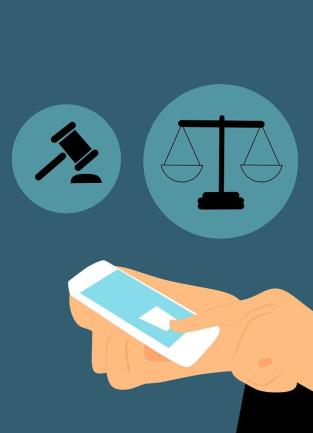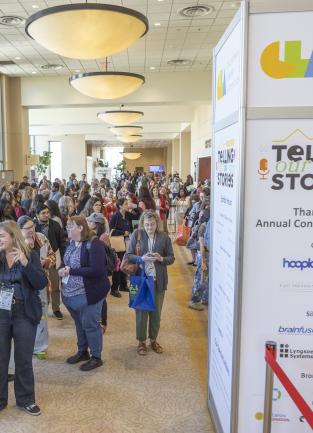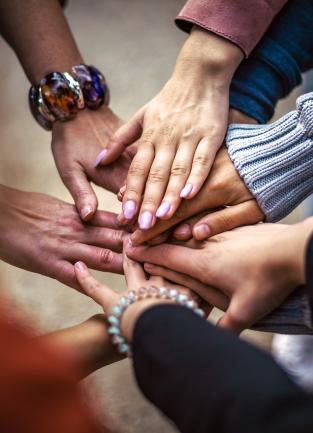From Reading to Resources: How Law Libraries Can Support Domestic Violence Awareness Month

October 4, 2024
October is Domestic Violence Awareness Month, which brings attention to an issue that affects many. When I first applied to work at the law library, I was advised that we are sometimes called on to help people during the most difficult days of their lives. Sadly, it is not rare to discover that one of our patrons is dealing with domestic violence. Knowing the right way to respond to these situations as someone not trained in social services can feel overwhelming, so it was with great relief that I found a training webinar titled, “Supporting Domestic and Sexual Violence Survivors at your Library,” given by Miranda Dube, a librarian and victim advocate. The video not only provided facts but concrete advice and measures that can be implemented in libraries and other establishments open to the public.
The facts are harrowing:
According to CDC.gov, 1 in 5 women and 1 in 7 men have experienced severe physical violence from an intimate partner in their lifetime. Abuse by a loved one can occur at any age and across any income, language, or background. Both the perpetrator and the victim may be either male or female.
The webinar explained some nuances between different populations dealing with abuse in their relationships that are helpful to realize:
- Those with disabilities and the elderly are much more vulnerable to abuse as their loved ones are often also their physical caregivers and the person they rely on for transportation and finances.
- Immigrants may not have the same knowledge of available resources and may be more vulnerable to their abusers’ threats of deportation, arrest or separation from their children.
- African American women are statistically less likely to trust or want to subject their partners to the criminal justice system. They are also rightly more concerned about dual arrest (where police respond and arrest both parties) and CPS involvement. People of color are more likely to seek help from friends, family, or their faith community than government authorities.
- Male abuse victims show more concern about stigma, a lack of being believed, and lack of societal support.
- Getting out of an abusive relationship may be more daunting for someone in the LGBTQ+ community as they may be concerned about prejudice from police and authority figures. Fewer than 5 percent of people in an abusive non-heterosexual relationship ever seek protective orders from the court.
A law library can be one of the first places people visit to seek information about the resources needed to navigate and eventually leave an abusive situation. People dealing with domestic abuse may come in seeking information about breaking a lease or getting a driver’s license or work permit and openly explain that they are trying to escape an abusive situation. Alternatively, they may ask for help using the computers and you notice that they are printing photos of injuries or filling out an application for a restraining order. Of course, people may choose not to share their personal stories, but the webinar does advise that when they do, staff may want to offer a quieter location (if possible), focus on active listening, and avoid platitudes while specifically asking what resources they are seeking and being ready with relevant referrals.
One factor I became aware of in researching this blog post is the extent to which abuse takes a cognitive toll that may affect a patron’s behavior through post-traumatic stress disorder and traumatic brain injury. This may present itself as indecisive, argumentative, or confused behavior. A study published in the New York Times shed light on the fact that this might limit the ability of those experiencing abuse to; “think through or cope with the complex, often formidable organizational tasks required for battered women to stop the violence, disengage from violent partners and/or establish independent lives.” The authors recommended that anyone who works closely with the public bear these difficulties in mind to help contextualize frustrating behavior.
Along with grim facts, the webinar does offer examples of simple steps that can be implemented in libraries to provide concrete help. Libraries can ensure that brochures for domestic violence resources are placed in highly visible locations. Even better, library bookmarks can provide not only information about the library but phone numbers to a few varied community resources, domestic violence shelters among them. In this way the information can be camouflaged from abusers. The phone numbers to domestic violence and human trafficking hotlines can also be displayed in library restrooms so that they can be copied or called privately.
The webinar shared a clever initiative called Book-It-To-Freedom which collects discarded library books and hollows them out to hide cell phones pre-loaded with domestic violence safety planning resources. These books are then given to local agencies who can distribute them to those in need to be stashed until the person is ready to put those resources to use.
Anyone working with the public, especially where the law is involved, knows that we cannot prepare for every circumstance and the often-brief encounters within our professional capacity may feel insignificant. However, by keeping the above facts in mind and implementing some simple steps to help we may be providing a key step in someone’s journey to safety.
Written by Laura Whyte, Lead Library Assistant
References:
https://www.cdc.gov/intimate-partner-violence/about/index.html
https://academic.oup.com/hsw/article-abstract/24/4/269/637994











